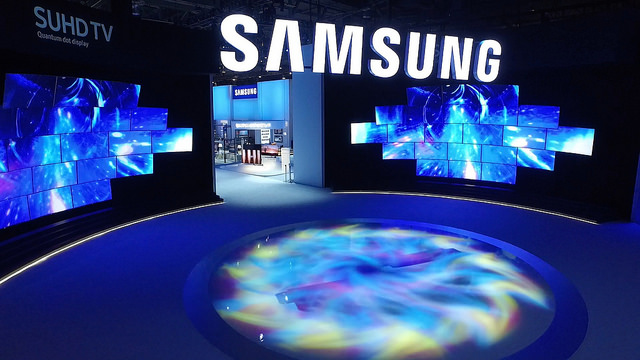Samsung is pledging €19.25 billion to fund wide-ranging research into 5G, AI, autonomous driving and semiconductors, as part of a wider €140 billion warchest for fuelling future growth
The electronics giant said it wanted to build “an innovation ecosystem” for the coming years. It comes off of the back of a disappointing performance of its latest flagship smartphone, the Galaxy S9.
As part of its three year plan, it will bolster its team of AI researchers to 1,000 across its R&D centres worldwide.
A spokesperson said: “Samsung expects innovations powered by AI technology will drive the industry’s transformation, while the next-generation 5G telecommunications technology will create new opportunities in autonomous driving, the Internet of Things (IoT) and robotics.”
It will also develop a range of system-on-chips for autonomous driving based on its semiconductor, telecoms and display technologies products, as well as build new chipsets to support AI, 5G and data centres.
The €19.25 billion investment is part of a wider KRW180 trillion (€138.64 billion) spend to support capex and research and development. Samsung said KRW130 trillion (€100.13 billion) of this bonanza will be spent in its native Korea.
The electronics company, which is also to explore biopharmaceuticals as part of its new plans, said it would double the number of employees it planned to hire over the next few years to 40,000.
Its C-Lab in-house incubator will back 500 projects, 300 external and 200 internal, to help foster new kinds of solutions and businesses.
Ten thousand students and potential employees will be trained at new software education centres that it is setting up across South Korea in partnership with the country’s government.
The announcement follows a comparatively difficult time for the manufacturer in its smartphone business. The world’s biggest smartphone manufacturer said last month that sales of its Galaxy S9 were lower than expected.
Research from IHS said Samsung had its worst quarterly performance in five years during Q2, when it shipped 70.8 million smartphones, down 10.8 percent year on year.
Nevertheless, it still has a market share of 20.6 percent.


